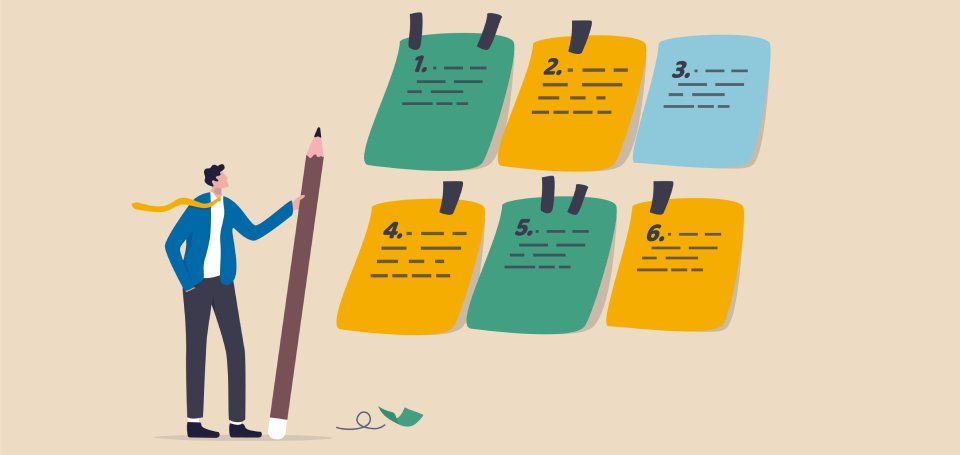Making your WordPress blog SEO-friendly is the key to driving traffic to your website. Unfortunately, the vast majority of SEO tutorials are too complex for beginners to understand.
If you are really interested in growing your blog traffic, then you have to ensure you follow WordPress SEO guidelines.
This article will explore the most effective SEO tips for your WordPress blog. This will boost your organic traffic and increase your site’s popularity.

Beginner’s Guide to WordPress SEO
Many experts agree that WordPress is one of the most SEO friendliest content management systems. This is the real reason why many people opt for WordPress to launch their blog or website.
While WordPress ensures that the code it develops adheres to SEO best practices, there are still many other things you must do if you want to get the most out of your SEO efforts.
Introduction
We understand that the idea of improving WordPress SEO can be unnerving for newbies, particularly if you’re not a computer geek.
It does not have to be difficult, so don’t stress. Start with the basics first, and then begin using them on your own site.
What is SEO?
SEO is an abbreviation for Search Engine Optimization. It’s a technique utilized by website owners to rank better in search engines and attract more traffic.
It is not the goal of search engine optimization to manipulate Google or cheat the system. It basically involves designing a website using structured code and layout. This allows search engines to simply access your website.
When people browse or look up the internet for the topics you have composed, your search-engine-optimized content will have a higher position in the search engine results, resulting in more people visiting your website.
Why SEO is important for your website
For the majority of websites, search engines are a major source of traffic.
Search engines such as Google use complex algorithms to analyze and rank web pages properly in search results. But such algorithms aren’t faultless; they still require your assistance to understand the subject matter of your content.
Without optimization, search engines may find it difficult to rank your content. Your website won’t show up on the search results when people look for the topics you blog on. This can lead to a serious loss of traffic.
It is crucial for all business owners to ensure that their website is search engine friendly so that they can achieve better search traffic.
WordPress Best Practices for SEO
If you adopt the principles of WordPress SEO and employ the most effective WordPress SEO plugin, you will be miles ahead of most websites.
However, if you desire even more excellent results, then you’ll have to implement the WordPress SEO strategies below.
These aren’t overly complex, and they won’t even involve you editing any code. But they’ll positively impart your website if you stick with them.
Correctly Use Categories and Tags in WordPress

WordPress lets you organize your blog content into categories and tags. This simplifies the whole process of managing your content by topic, making it easier for your users to locate the content they want.
Categories and tags also assist search engines in determining your website content and layout.
Many times, beginners are unsure about the perfect ways to utilize categories and tags.
Here’s how we go about categorizing and tagging content:
The aim of categories is to broadly group your content. Categories would be the table of content if your blog were a book.
For instance, on a personal website, you can have categories such as songs, meals, vacations, etc. Categories are highly structured. This allows you to add child categories to them.
However, tags are much more specific keywords that explain the content of a single blog entry. For instance, a blog entry categorized as “food” can have tags like “soup,” “lunch,” “scrambled eggs,” etc. The tag is similar to the index in a book.
By utilizing categories and tags correctly, you make it simpler for your visitors to navigate your website. Because it’s simple for users, it’s also simple for search engines to access your website.
Read: What is the Best Website Builder for a Small Business
Routinely Use Internal Linking
Each page within your website receives a score from the search engines (known as page authority). The formula of this score is kept under wraps so that people cannot manipulate the system. However, links are the most widely accepted signals of authority, according to most SEO specialists.
This is the reason why it’s vital that you add links from other blog articles and pages within your website to your new content.
Always interlink your own blog posts when you can. If you have several writers, then draw up a pre-published blog article review that will need them to interlink a minimum of 2 – 3 other blog posts.
This will assist you in increasing your pageviews, lowering your bounce rates, and finally, will boost the SEO score for your specific blog pages and articles.
Optimize WordPress Comments
Comments might be a big signal of user engagement on your blog. Engaged users lead to better links back to your site, higher traffic, and enhanced SEO.
Even so, you have to ensure that your comments are authentic and not spam. Spammers post comments with negative links, which can negatively impact and even mess up your search rankings.
This is the reason we advise everybody to start using Akismet. It is among the two plugins that come pre-installed on all WordPress websites, and it assists you in curtailing comment spam.
If your blog content draws plenty of legit, spam-free comments, then you deserve applause for improving your website engagement.
However, note that too excessive amount of comments on a page can slow its load time, which also negatively impacts your ranking in search engines.
You can gear up your website so that it can manage the stress comments will place on your server and load time by dividing comments into web pages.
Security and Speed for WordPress SEO

Even if you implement all of the WordPress SEO guidelines above, if your site has a slow load time or is compromised by a malicious attacker, your search engine rankings will be ruined.
Here’s how to keep your website from losing visitors as a result of laggy performance or poor security:
Studies show that in the digital era, the average human attention span is getting shorter.
User experience analysts claim that under the first ten seconds of accessing a website, visitors decide if they want to exit or stay,
User experience analysts claim that under the first ten seconds of accessing a website, visitors decide if they want to exit or stay,
This implies that as a site owner, you only get a few seconds to showcase your content and impress users. You do not wish to squander this valuable time by allowing your visitors to experience delays and wait for your slow website to load.
Because user experience is so essential, search engines such as Google favour fast-loading websites and rank them high in their results. This is why investing in your WordPress blog speed is crucial. It is also important to remember that in most cases if you solve your website speed, you would eliminate most Google Core Web Vital problems.
Start Using SSL/HTTPS
SSL (Secure Sockets Layer) is a tool that authenticates the data sent between a user’s browser and the web server they have access. This adds an extra security shield to your WordPress website.
When the URL bar of the browser displays a padlock, it is an indicator that the website is SSL-secured. This will boost the credibility of your website, and it is important if you use WordPress to manage an online store that processes sensitive payment details.
Conclusion
We hope you found this post useful in learning how to correctly improve your WordPress site’s SEO-friendliness. Ensure you implement these strategies to improve your website traffic in a matter of months as search engines update their algorithms to reflect your improvements.

